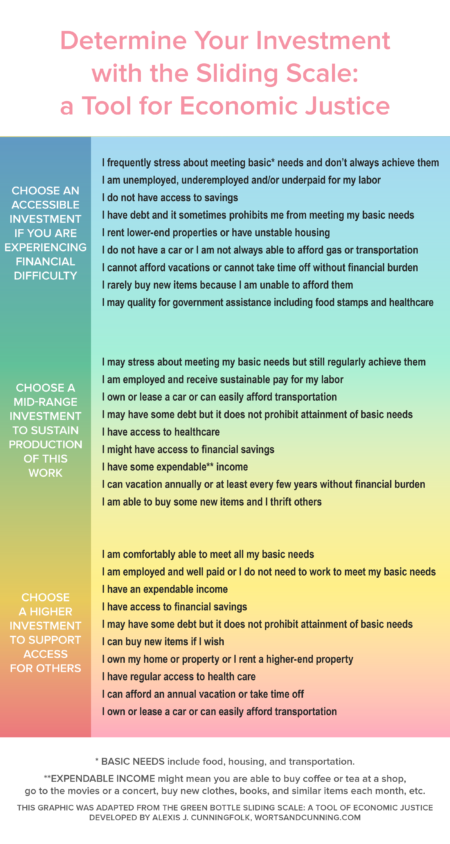
At the core of any socially conscious business is a principle known as equity. Here we will distinguish equality from health equity, and then we’ll provide coaching examples and steps to advance equity in your health coaching business for greater social impact that aligns with your values.
Advancing Health Equity as Health and Wellness Coaches
“Health equity means increasing opportunities for everyone to live the healthiest life possible, no matter who we are, where we live, or how much money we make.” – Robert Wood Johnson Foundation
Equality Vs. Equity: What’s the Difference?
The U.S. Centers for Disease Control and Prevention (CDC) explains that “equity is a process and equality is an outcome of that process.”
Equality: Providing the same type and number of resources to all (which, through an equity lens, does not yield equal opportunities).
Equity (Health): Addressing underlying issues and individual needs of underserved or vulnerable populations in order to reduce the number of health disparities—positive or negative health outcomes that are closely linked to social, economic, or environmental disadvantages.
Understanding the difference between health equality and health equity is important for socially driven health coaches to ensure that resources are widely accessible and the coach’s efforts meet people where they are at.
Equality Vs. Equity: Examples in Your Coaching Business
- To achieve equality with your coaching services, your offers would be easily discovered and available to purchase by anyone, without discrimination. And, everyone pays the same price. Addressing equity could mean that your services are available to purchase on a sliding scale to compensate for economic disparities.
- Equality could be demonstrated by posting streaming workouts in your free Facebook group. To address inequity, however, you might recognize that some people don’t have high-speed internet or adequate cell reception to stream videos, thus, you accommodate. Example accommodations are to make the videos available for download, you can add captions to your videos for the hearing impaired, and you can turn videos into blog posts with instructional images.
Equity-enhancing coaches see and treat individuals with autonomy and respect. If equity is important to you, attend a coaching school that teaches client-centered coaching, motivational interviewing, and behavior change psychology. These skills differentiate untrained coaches—who rely upon the expert approach—from certified coaches trained in scientifically validated techniques that foster self-determination and equity.
7 Equity-Enhancing Skills for Health and Wellness Coaches:
- See each client as their own unique, exceptional being. Demonstrate genuine curiosity, and never make assumptions about their story. Learn their values, and honor them.
- Co-discover each client’s favorite ways to learn. Be flexible, willing to set aside your well-laid plans to deliver resources in a uniform way, and get creative with your client to brainstorm other ways to learn new information.
- Meet your client with unconditional positive regard, and believe in their unique ability to face challenges or try new behaviors. Learn their strengths, and affirm them regularly.
- Always meet clients where they are at, considering the client’s ever-changing readiness or stage of change.
- Demonstrate unfailing respect for each client’s perceptions, past experiences, opinions, and emotions.
- Practice autonomy-centered coaching. Ask permission to share your ideas or perspective in any coach-client interaction.
- *Be culturally curious and responsive. Invite your clients to share where they’re from, what their diet was like growing up, and which foods are staples (if they’re comfortable with doing so). Discover and respect their religious or spiritual beliefs, how traditional or non-traditional roles affect their household, and more. Value and affirm all forms of difference, and adapt your coaching style to honor their cultural values.
*A hypothetical case for cultural responsiveness: I, a certified primal health coach, am hired to coach a person of Mexican heritage as they explore healthy eating habits. I suggest that this client follow a primal eating template, which involves removing all grains from their diet, including corn (which many people are surprised to learn is a grain, not a vegetable). The client is resistant to my recommendation because corn is a culturally significant part of their heritage.
What if, instead, I take a more inclusive approach that is culturally responsive? I’m curious about what corn means to this client, and what they know about its nutritional value. I use active listening skills to see if they’re interested in learning the positive and negative effects corn can have on health. I sense this person isn’t ready to exclude corn from their diet, but they’ve expressed that they want to learn more. I engage to share ways they can select, prepare, and cook corn to optimize nutrients while minimizing toxins. The client feels respected, autonomous, capable, and inspired.
Consider these factors and demographics when designing an equity-based coaching business:
- Race and Ethnic Identity
- Location
- Age
- Gender Identity
- Sexual Orientation
- Socio-economic Background
- Cultural Values
- Religious/Spiritual Significance
- Ability/Accessibility
- Neurodiversity (disorders and variations in brain/mood/social/learning)
Equity-Based Pricing for Health and Wellness Coaches
As a socially driven solopreneur, you may feel conflicted between the desire to make money in your new business while also aligning business plans with your core values. This is a common struggle faced by socially conscious coaches, and the topic came to light in a dynamic podcast interview on Health Coach Radio with guest Trudi Lebron, founder of the Institute for Equity-Centered Coaching®.
Lebron explained that if you value health equity, your instincts usually alarm you when something’s amiss. “There are people who don’t have lots of money, who are marginalized…who need access to these programs or services…So, I think it’s important to check in with your values, what you believe in so that you’re in alignment.”
One sign that you’re out of alignment is if you experience anxiety or procrastination in your business because the price of your services is out of reach for many people who seek it. In my own experience, a tidal wave of relief came over me once I lowered my prices to something more affordable to all. I felt instantly aligned and authentic to my values, and I am able to help more people because of it.
Strategies for Equity-Based Pricing for Health Coaching Services
- Create tiered pricing and programming
- Examples: free Facebook community, group coaching, semi-private groups, coaching friends/family in pairs for a reduced cost, self-paced programming, and online courses.
- Create a sliding scale for your most in-demand service (see image below for inspiration)
- Offer interest-free payment plans that coincide with the client’s payday
- Encourage potential clients to inquire about a health savings account (if their insurer allows the money to be used towards health coaching services)
- Create scholarships
- Dedicate a percentage of proceeds to donate your services to those in need
By creating offers at different price points, you’re giving almost everyone the chance to work with you.
Some equity-centered businesses guide potential clients to make an honest assessment regarding what services they can truly afford, and then, their answers are factored into a sliding scale price model. Below is a graphic tool for economic justice that lists the many factors one may consider to determine the tier of investment that aligns with their state of financial security:

Social Impact for Health Coaches
Health and wellness coaches who are passionate about social change can design their business model to help create positive outcomes for clients and communities near or far.
A coach’s social change initiatives might be in collaboration with non-profit organizations or corporate social impact programs, or the coach might initiate social progress within their own community and programming.
Take this story shared by PHCI admissions director, Laura Rupsis, for an example of how one influencer chose to make a local impact in his community:
“The man behind Steve’s Paleo Goods also owns a CrossFit affiliate location. 10% of his proceeds earned selling food through Steve’s Paleo Goods goes towards a scholarship for at-risk kids to join his gym and do something positive after school instead of ‘getting into trouble’…There are ways that you can do this stuff, coaches, like, take a portion of your proceeds, put it aside, and give away a scholarship to someone who might need your services.”
Are you looking for ideas on how to collaborate or initiate social change with your coaching business?
You’ll find plenty of inspiration through the International Coaching Federation (ICF) Foundation’s Ignite initiatives…
The ICF Foundation compiled various tools and templates to help you conceive and execute pro bono coaching activities that help individuals and organizations in your community experience the transformative potential of professional coaching.
Although the foundation has several social impact programs that require an ICF certificate to participate, they encourage coaches to use their resource suite of tools for creating their own “Ignite lite” project, or, to explore the pro bono toolkit they’ve graciously put together for our collective mission.
“When we share the power of coaching with our world, we have the power to ignite our local communities and spark a global impact.”



